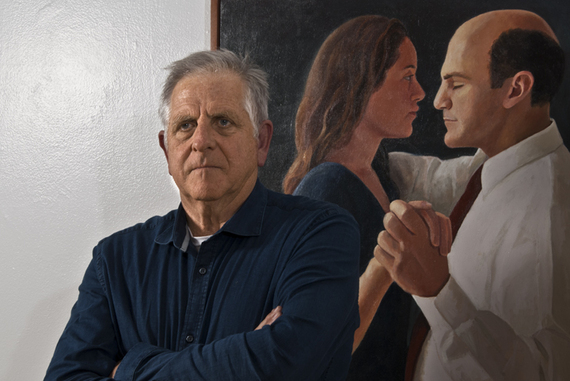Capitalism and the Queen
LOS ANGELES – It might seem like an obscure footnote among the history-making events of 2022, but the year of Queen Elizabeth II’s death coincides with the 300th anniversary of Adam Smith’s birth. It also might seem like these two famous British figures have little to do with one another; Smith, after all, tends to be associated more with Margaret Thatcher, who was said to have kept a copy of The Wealth of Nations in her handbag. But Smith was more a humanist than a Thatcherite. Like the late queen, he was interested in creating a happy, peaceful, prosperous, benevolent society through the promotion of Stoic ideals.
When Smith extolled the Stoic model of duty, he could have been describing Elizabeth II, who rarely if ever sounded like a free-market economist. Smith decried greed, mistrusted private companies, and believed that the values he cherished could best be embodied by an agrarian class of landowners whose main object was disinterested service to the state. As he saw it, this kind of arrangement was ideally suited to maintaining both political liberty and free markets.
Whether one admires the late British queen or not, it is hard to deny that she both loved the rhythm of country life and the rigors of duty to the state. She saw her role as that of an adviser who could unify British society, thereby allowing markets to operate freely and smoothly.
Any student of classical philosophy will recognize that these were the chief virtues celebrated by Smith’s inspiration, the Roman senator and philosopher Marcus Tullius Cicero, who was concerned with aristocratic land management, moral philosophy, disinterested friendship, and service to the state. As a professor of moral philosophy, Smith channeled Cicero into all his work, from his teaching on the humanities and law to his masterworks The Theory of Moral Sentiments and The Wealth of Nations.
As a committed Stoic, Smith had little patience for greed. The whole point of Roman Stoic philosophy was to use personal moral discipline to support the rule of law and constitutions, and to make society a better place. Smith believed that disciplined moral leadership would ensure a free market by providing a disinterested referee. In fact, his famous description of the “impartial spectator” sounds like a description of the role that the queen played in contemporary British political economy.
Working from the Stoic philosophies of Marcus Aurelius and Epictetus, Smith believed that civil peace and free markets came about by considering the world through others’ eyes. That is how one becomes an “impartial spectator” who can help members of society “avoid anger” and “amend their faults,” by showing “them the error of their ways.” The model Stoic leader would help people make “compassionate” decisions both in personal and civic life as well as in trade – much as the queen did throughout her reign.
Smith believed that impartial spectators could lead by example and inspire others to follow suit, forming a chain of benevolence and service to society. As he wrote in his 1773 “History of Astronomy,” a chain of events – in this case, personal choices of benevolence – could mirror Newton’s system of planetary movement and create an “invisible hand” that would keep equilibrium in society. Commerce, too, wrote Smith, should operate on this model, and “ought to be, among nations, among individuals, a bond of union and friendship.”
To be sure, Smith was a constitutional monarchist and an elitist. He believed that the ideal legislator was polite, benevolent, and – in the traditions of Cicero and John Locke – capable of the personal self-restraint necessary to uphold the civil law and the constitution, along with the dual hope of protecting institutions and fostering societal progress. Smith complained that, “by a strange absurdity,” greedy merchants saw the “character of the sovereign as but an appendix” to their own commercial interests. The very point of constitutional monarchy and political virtue, he implied, was to provide disinterested service to the nation.
There are numerous critiques of the monarchy to be made. But no one can deny that Elizabeth II saw herself in this Smithian light, and worked to set an example of duty and disinterestedness to calm popular passions. One might view her as a very visible hand that stood above the fray to remind society of the value of compassion and Stoic virtues. When we read Smith, we are better served to think of the example of Elizabeth II than of those driven by personal greed. It might sound archaic, but, as Britons’ response to her death suggests, these values still appeal to a great many people today.
Jacob Soll, Professor of Philosophy, History, and Accounting at the University of Southern California, is the author of Free Market: The History of an Idea (Basic Books, 2022).
Copyright: Project Syndicate, 2022.
www.project-syndicate.org
This article is brought to you by Project Syndicate that is a not for profit organization.
Project Syndicate brings original, engaging, and thought-provoking commentaries by esteemed leaders and thinkers from around the world to readers everywhere. By offering incisive perspectives on our changing world from those who are shaping its economics, politics, science, and culture, Project Syndicate has created an unrivalled venue for informed public debate. Please see: www.project-syndicate.org.
Should you want to support Project Syndicate you can do it by using the PayPal icon below. Your donation is paid to Project Syndicate in full after PayPal has deducted its transaction fee. Facts & Arts neither receives information about your donation nor a commission.


